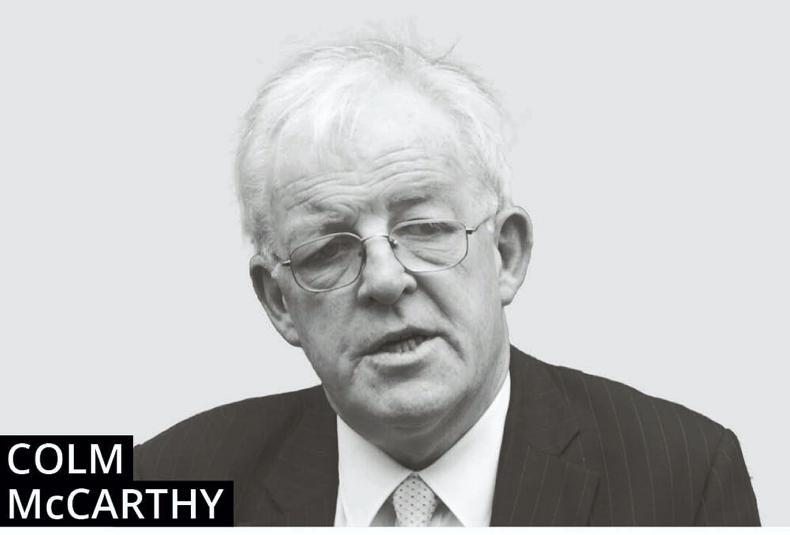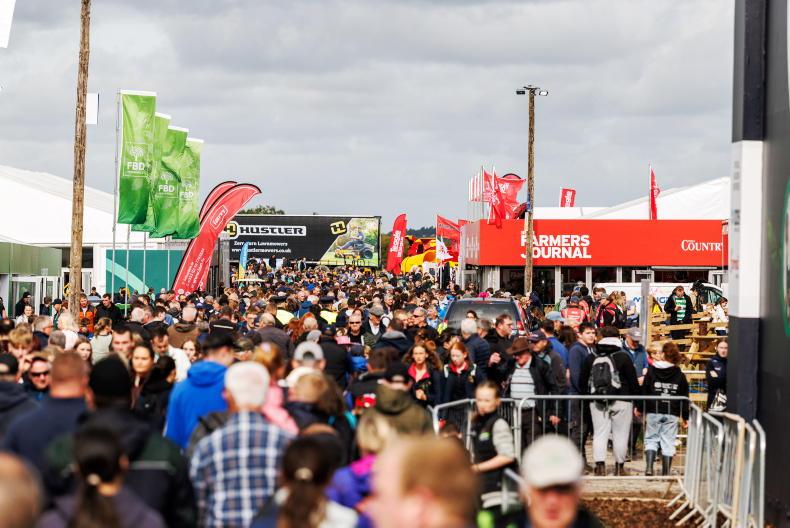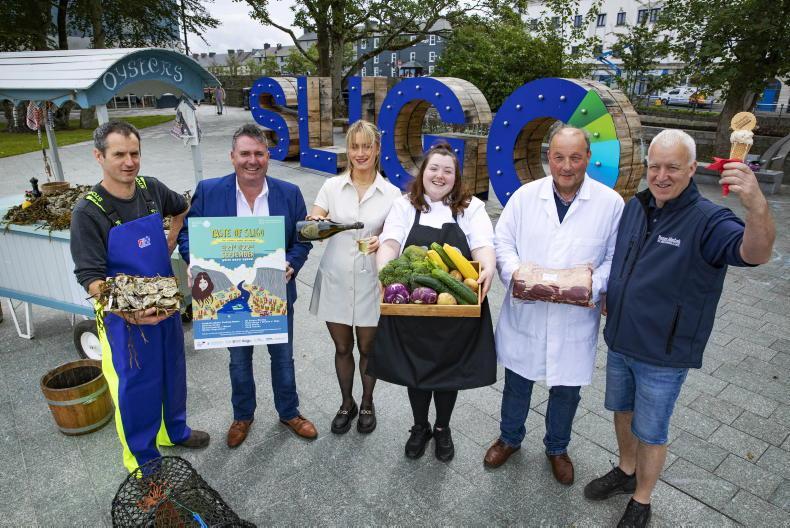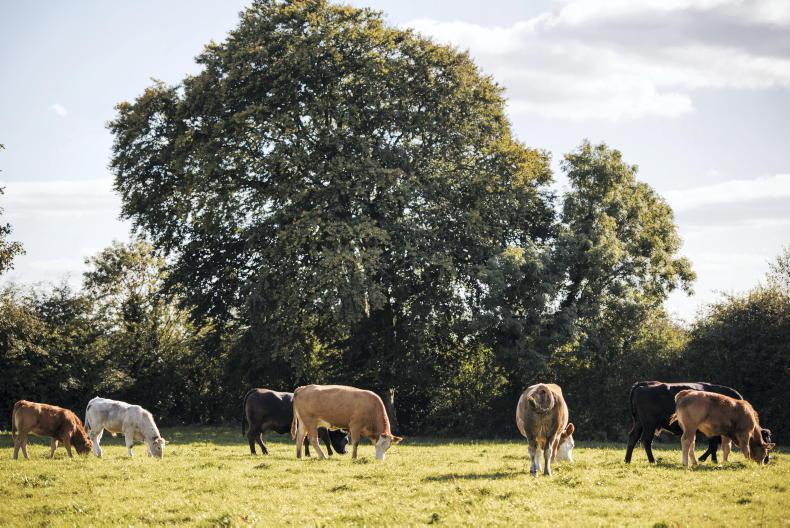Hospitality enterprises, especially hotels, restaurants and visitor attractions, have been hit hard by the COVID-19 downturn, both by specific government measures and by the unwillingness of a nervous public to patronise these establishments. They are in the firing line again as the Government intensifies lockdown measures, while also being indirect victims of the collapse in aviation. Most visitors to Ireland arrive by air and the failure to test at airports, relying instead on quarantine, has discouraged inbound tourism.
There has been a sharp resurgence of the virus in Ireland and a ludicrous situation where countries like Germany and Italy, with much lower recent incidence of the disease, are excluded from the Irish green list. Transport minister Eamon Ryan indicated on television on Sunday that a new policy that may require airport testing is being considered, but it is several weeks away and the 2020 season has been lost.
Spreading economic activity
The tourism industry provides employment throughout the country and is one of the few non-agricultural sectors, aside from public services such as education and health, which spreads economic activity around the provinces. Other things equal, it would be nice to think that the hotel sector will play a role in the post-COVID-19 recovery, whenever it comes.
There is no certainty that an effective vaccine will be available in time to save the 2021 season and the early optimism about a V-shaped recovery, in tourism or in the economy generally, has been abandoned
Last week the Irish Hotels Federation released survey results which paint a scary picture for the sector as it faces into winter. The resurgence of COVID-19 has spurred cancellations, which now exceed new bookings. Around the country, occupancy rates are projected at 22% for October but only 10% in Dublin. Several large hotels have closed indefinitely and the Shelbourne in Dublin has announced layoffs. A prolonged lockdown will see many hospitality businesses go under in the months ahead.
The downturn in the accommodation sector may not be temporary. It is already clear that recovery from COVID-19 may not come soon. There is no certainty that an effective vaccine will be available in time to save the 2021 season and the early optimism about a V-shaped recovery, in tourism or in the economy generally, has been abandoned.
Recent data from the pub and restaurant sector estimates that €60m of supplies had gone to waste due to the unpredictable intensification of restrictions and this before the new measures just announced.
Premature reopenings
In Ireland and around Europe it is now clear that the reopening of economies from May onwards was premature since the prevalence of the virus was underestimated due to inadequate testing. It was sufficient to seed new outbreaks. The resumption of travel coincided with copycat reopening policies across the continent and almost every country and region has seen a sharp resurgence in reported cases. The resurgence in Ireland is stronger than in some other countries, with superior testing and tracing and the result has been a new round of economically-damaging restrictions.
Lockdown works, as was seen in April and May, but a superior policy was available – earlier action, a better testing system and a smarter regime of surveillance on international travel. The Irish colour-coding of countries, with red status and quarantine applied to some with much lower incidence, gives public policy a bad name, as does the issuance of dire warnings to the public coincident with the reopening of pubs outside Dublin, including pubs in adjoining counties with high-capacity car parks.
There are other examples. If the country ends up in Level 5 for an extended period there will be no matches or race meetings, even behind closed doors. So far as I am aware, there is no evidence of virus transmission at these tightly controlled outdoor events in recent months. The problem for the public heath team is that micro-managing a complicated economy and society, day by day, from an office in Dublin is beyond their practical capacity. Were it simple the Soviet Union would have been a success.
Budget considerations
The understandable demand from sectors adversely affected by see-saw policies is for monetary compensation but the government is rightly wary of running up the budget deficit even more rapidly. The hospitality industry has sought a VAT reduction from 13.5% (a reduced rate) to 9%, and it is doubtful if this would make any difference even if establishments were open.
A better long-term strategy, especially for the hotels outside Dublin, would be a proper testing system at airports, to encourage the resumption of travel and to replace the clumsy and unenforceable arrangements in place hitherto. It is worth remembering that the security screening introduced after 9/11 was meant to be temporary but is still in place. If airline passengers stay nervous the infrastructure and staff for airport testing might be needed for many years to come. It is difficult to avoid the conclusion that the virus is ahead, with governments just reacting to events.
Read more
Blown away by Wexford
Coronavirus Level 5 – what would it mean for farmers?
Hospitality enterprises, especially hotels, restaurants and visitor attractions, have been hit hard by the COVID-19 downturn, both by specific government measures and by the unwillingness of a nervous public to patronise these establishments. They are in the firing line again as the Government intensifies lockdown measures, while also being indirect victims of the collapse in aviation. Most visitors to Ireland arrive by air and the failure to test at airports, relying instead on quarantine, has discouraged inbound tourism.
There has been a sharp resurgence of the virus in Ireland and a ludicrous situation where countries like Germany and Italy, with much lower recent incidence of the disease, are excluded from the Irish green list. Transport minister Eamon Ryan indicated on television on Sunday that a new policy that may require airport testing is being considered, but it is several weeks away and the 2020 season has been lost.
Spreading economic activity
The tourism industry provides employment throughout the country and is one of the few non-agricultural sectors, aside from public services such as education and health, which spreads economic activity around the provinces. Other things equal, it would be nice to think that the hotel sector will play a role in the post-COVID-19 recovery, whenever it comes.
There is no certainty that an effective vaccine will be available in time to save the 2021 season and the early optimism about a V-shaped recovery, in tourism or in the economy generally, has been abandoned
Last week the Irish Hotels Federation released survey results which paint a scary picture for the sector as it faces into winter. The resurgence of COVID-19 has spurred cancellations, which now exceed new bookings. Around the country, occupancy rates are projected at 22% for October but only 10% in Dublin. Several large hotels have closed indefinitely and the Shelbourne in Dublin has announced layoffs. A prolonged lockdown will see many hospitality businesses go under in the months ahead.
The downturn in the accommodation sector may not be temporary. It is already clear that recovery from COVID-19 may not come soon. There is no certainty that an effective vaccine will be available in time to save the 2021 season and the early optimism about a V-shaped recovery, in tourism or in the economy generally, has been abandoned.
Recent data from the pub and restaurant sector estimates that €60m of supplies had gone to waste due to the unpredictable intensification of restrictions and this before the new measures just announced.
Premature reopenings
In Ireland and around Europe it is now clear that the reopening of economies from May onwards was premature since the prevalence of the virus was underestimated due to inadequate testing. It was sufficient to seed new outbreaks. The resumption of travel coincided with copycat reopening policies across the continent and almost every country and region has seen a sharp resurgence in reported cases. The resurgence in Ireland is stronger than in some other countries, with superior testing and tracing and the result has been a new round of economically-damaging restrictions.
Lockdown works, as was seen in April and May, but a superior policy was available – earlier action, a better testing system and a smarter regime of surveillance on international travel. The Irish colour-coding of countries, with red status and quarantine applied to some with much lower incidence, gives public policy a bad name, as does the issuance of dire warnings to the public coincident with the reopening of pubs outside Dublin, including pubs in adjoining counties with high-capacity car parks.
There are other examples. If the country ends up in Level 5 for an extended period there will be no matches or race meetings, even behind closed doors. So far as I am aware, there is no evidence of virus transmission at these tightly controlled outdoor events in recent months. The problem for the public heath team is that micro-managing a complicated economy and society, day by day, from an office in Dublin is beyond their practical capacity. Were it simple the Soviet Union would have been a success.
Budget considerations
The understandable demand from sectors adversely affected by see-saw policies is for monetary compensation but the government is rightly wary of running up the budget deficit even more rapidly. The hospitality industry has sought a VAT reduction from 13.5% (a reduced rate) to 9%, and it is doubtful if this would make any difference even if establishments were open.
A better long-term strategy, especially for the hotels outside Dublin, would be a proper testing system at airports, to encourage the resumption of travel and to replace the clumsy and unenforceable arrangements in place hitherto. It is worth remembering that the security screening introduced after 9/11 was meant to be temporary but is still in place. If airline passengers stay nervous the infrastructure and staff for airport testing might be needed for many years to come. It is difficult to avoid the conclusion that the virus is ahead, with governments just reacting to events.
Read more
Blown away by Wexford
Coronavirus Level 5 – what would it mean for farmers?









SHARING OPTIONS